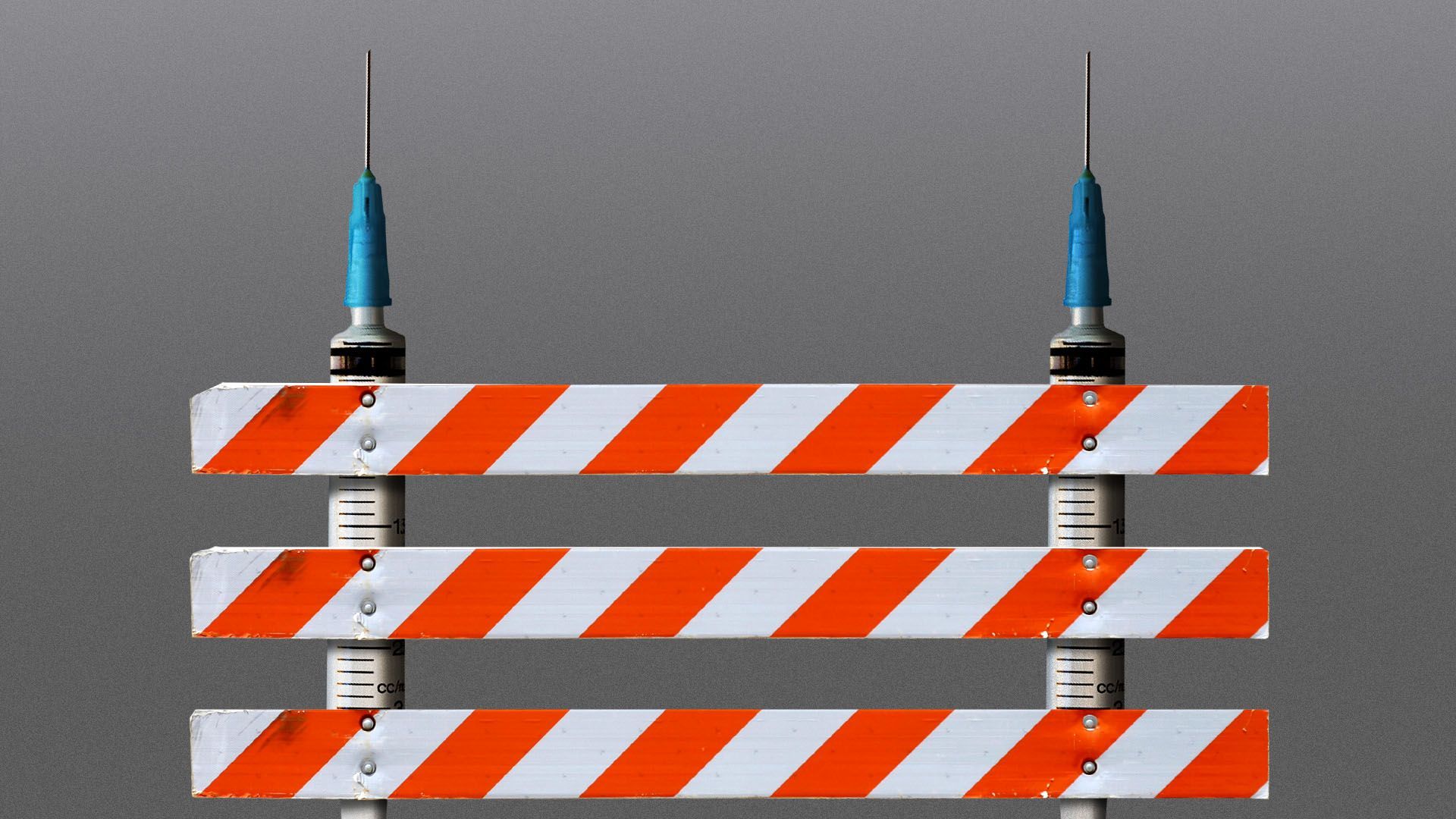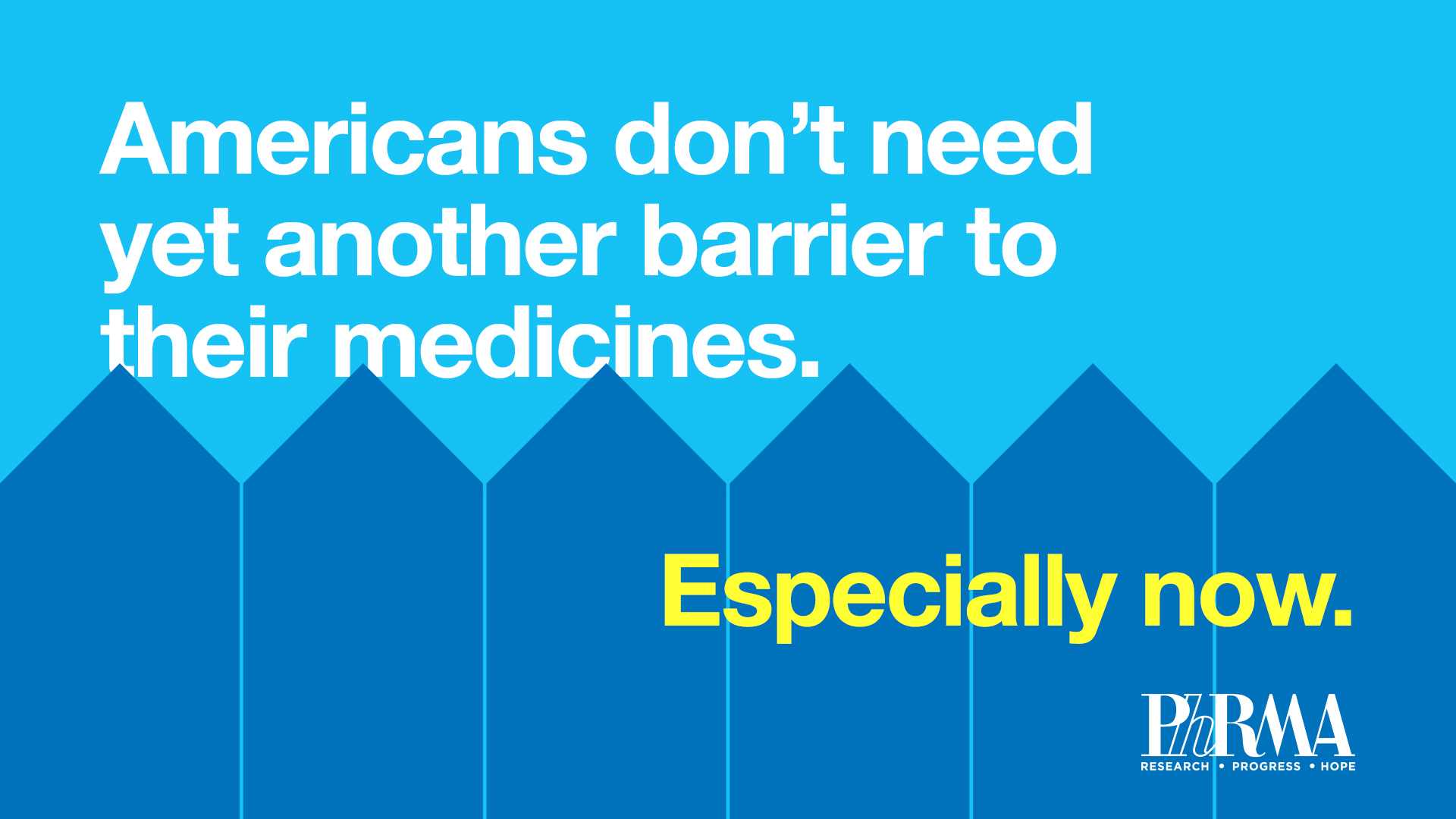| | | | | | | Presented By PhRMA | | | | Axios Vitals | | By Caitlin Owens ·Mar 14, 2022 | | Good morning. Today's word count is 790, or a 3-minute read. | | | | | | 1 big thing: America's other public health threat |  | | | Illustration: Sarah Grillo/Axios | | | | Former federal officials are warning that the U.S. isn't ready for the possibility of biological warfare, just as it failed to prepare for pandemics, and that it's time to invest more in countermeasures. Why it matters: Though there's no immediate threat, fears that Russia may use biological or chemical weapons against Ukraine underscores the need to prepare for worst-case scenarios. - "We need to be prepared to be able to respond to the next crisis, whatever that might be. It may be another emerging infectious disease, it may be an intentional biochemical event ... we can't predict that," said Robert Kadlec, who was the HHS assistant secretary for preparedness and response during the Trump administration.
The big picture: The U.S. has historically invested in a stockpile of treatments, vaccines and equipment to use in the event of an emergency. - This is the same stockpile that held masks and ventilators that we have used during the coronavirus pandemic. But it also stores therapeutics and other countermeasures that can be used against smallpox, anthrax, radiation, nuclear burns, among other threats.
- What is kept in the stockpile and at what levels is determined by the government based on threat levels. However, investment hasn't kept up, by the government's own standards.
What we're watching: There's a lot of overlap between preparing for another pandemic and preparing for biologic or chemical warfare, experts say, and both are worth heavily investing in. - Kadlec now works for Sen. Richard Burr and has helped craft a bipartisan pandemic preparedness bill, but says even that wouldn't make all of the necessary changes.
- "We didn't even go far enough for the pandemic with lessons learned," Kadlec said. "The question is, what is it going to take for us to understand that we live in a world that these things can happen tomorrow?"
Go deeper. |     | | | | | | 2. Another European warning |  Data: Our World in Data; Chart: Jared Whalen/Axios Coronavirus cases are once again surging in several European countries, potentially signaling that the U.S. will soon experience another spike as well. Between the lines: Several factors are likely at play, including relaxed mitigation measures, the spread of the B.A.2 variant and waning vaccine protection, tweeted Scripps Research's Eric Topol. State of play: Cases are still plunging in America, and hospitalizations are at their lowest level since last summer. - As we've learned over and over again, the virus can still come surging back. However, previous infections and vaccinations will likely prevent most cases from becoming severe if there's another wave.
|     | | | | | | 3. A potential case of telehealth gone wrong | | Behavioral telehealth company Cerebral has prioritized growth over providing high-quality care, former employees told Bloomberg, putting patients at risk. Between the lines: Some employees said that providers were pressured to prescribe drugs after short virtual sessions. Some former nurses said they fear they're fueling a new addiction crisis. The big picture: Telehealth, and especially virtual behavioral care, exploded during the coronavirus pandemic but Cerebral stands out for the scope of its growth, per Bloomberg. - The federal government relaxed rules requiring in-person examinations before someone could be prescribed addictive drugs, including those used to treat various mental health conditions.
- This opened the door for what former employees described to Bloomberg as inappropriate behavior. In Cerebral's "hunt for explosive growth, they say, it has made appointments too short, set follow-up sessions too infrequently, advertised too aggressively, pushed prescriptions too hard, and paid front-line staff too little."
- A spokesman for the company emphasized its safety mechanisms and said it tries to reduce the number of controlled substances used by patients.
Why it matters: "In psychiatric telehealth, the stakes are heightened by the prospect of patients in crisis and the risks of addictive drugs," Bloomberg writes. |     | | | | | | A message from PhRMA | | Voters want Congress to address health insurance | | |  | | | | Many Americans reject so-called government "negotiation" once they learn it could sacrifice access, choice and innovation. The story: Respondents find health care coverage costs unreasonable and a top priority health care issue for policymakers to address today. Read more in the new survey. | | | | | | 4. Opioid overdose rate's racial reversal | | Black Americans fatally overdosed in 2020 at a higher rate than white Americans for the first time since 1999, the Wall Street Journal reports, a reflection of the changing nature of the opioid epidemic. The big picture: The rise of fentanyl, which is more deadly than heroin or prescription opioids, is driving the overdose rate higher and changing its demographics. - But the higher overdose rate among Black Americans reflects some of the same inequities responsible for the pandemic's outsized impact on underserved communities.
- Specifically, Black Americans are more likely to struggle with accessing health care and the treatments they need for opioid use.
|     | | | | | | 5. While you were weekending |  | | | Illustration: Aïda Amer/Axios | | | - A fourth dose of the COVID-19 vaccine will be necessary in order to maintain manageable levels of hospitalizations and mild infections, Pfizer CEO Albert Bourla told CBS' "Face the Nation" on Sunday.
- A jury on Friday sided with Sutter Health in an antitrust case that claimed the health system drove up health premiums through anticompetitive behavior, Reuters reports.
- The National Suicide Prevention Lifeline is about to get a reboot, but there are already concerns that it won't be able to keep up with demand without more funding, the New York Times reports.
|     | | | | | | A message from PhRMA | | Voters want Congress to address health insurance | | |  | | | | A decisive majority of Americans (86%) agree Congress should crack down on abusive health insurance practices impacting patients' access to care. Why it's important: Greater transparency and accountability within the current health insurance system. Read more in new poll. | | |  | It's called Smart Brevity®. Over 200 orgs use it — in a tool called Axios HQ — to drive productivity with clearer workplace communications. | | | | | | Axios thanks our partners for supporting our newsletters. If you're interested in advertising, learn more here.
Sponsorship has no influence on editorial content. Axios, 3100 Clarendon Blvd, Suite 1300, Arlington VA 22201 | | | You received this email because you signed up for newsletters from Axios.
Change your preferences or unsubscribe here. | | | Was this email forwarded to you?
Sign up now to get Axios in your inbox. | | | | Follow Axios on social media:    | | | | | |







No comments:
Post a Comment